Initiative to create pedestrian-friendly streets to cover all 24 Singapore towns by 2030
Sign up now: Get ST's newsletters delivered to your inbox
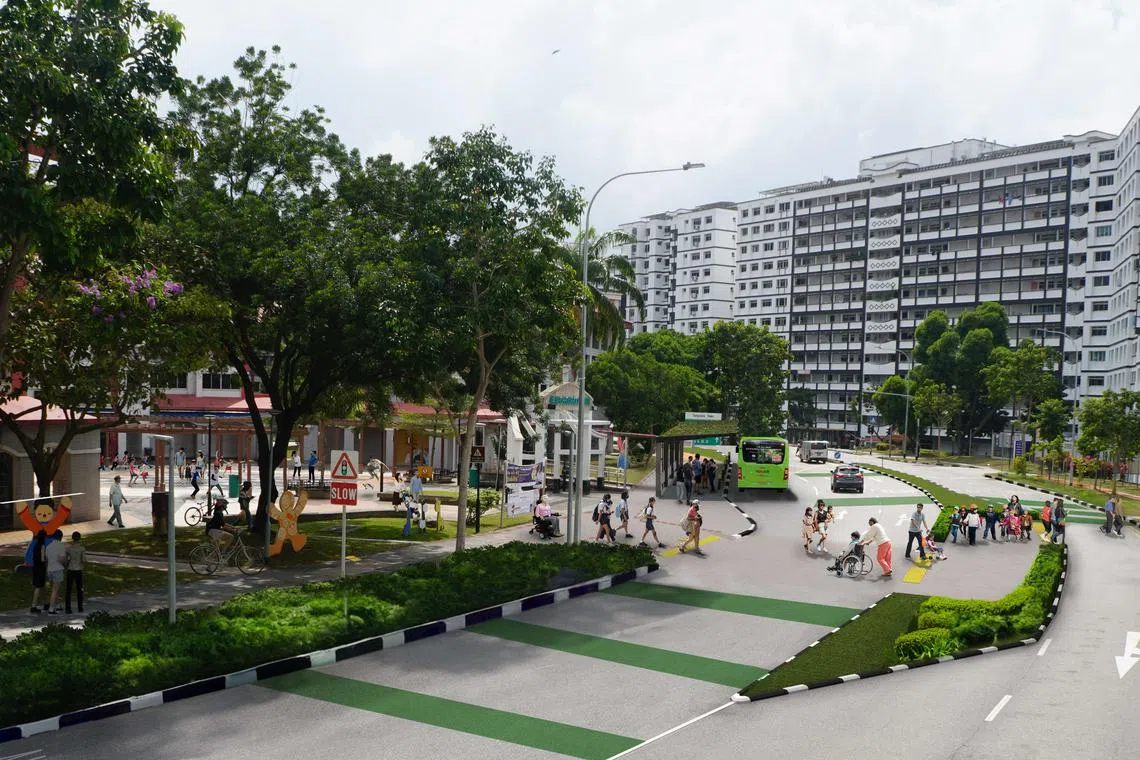
The pedestrian-friendly streets will have longer green-man signals, lower speed limits and kerb-free crossings.
PHOTO: LTA
Follow topic:
SINGAPORE – By 2030, an initiative to make some neighbourhood streets safer and more conducive for pedestrians, including seniors, will be expanded to cover all 24 towns in Singapore.
When that happens, these streets will have longer green-man signals,
Meanwhile, more than 20 older precincts in Ang Mo Kio, Bukit Merah, Queenstown and Toa Payoh, which have a higher concentration of elderly people, will be spruced up over the next five years to promote active ageing.
Barrier-free ramps, fitness trails and therapeutic gardens are in the works. These senior-centric upgrades are expected to benefit more than 21,000 households in these precincts.
Fitness trails, for instance, are meant to encourage seniors to go outdoors, stay active and expand their social networks. One such fitness trail will be built in the Mei Ling precinct in Queenstown as part of rejuvenation plans announced by the Housing Board in September.
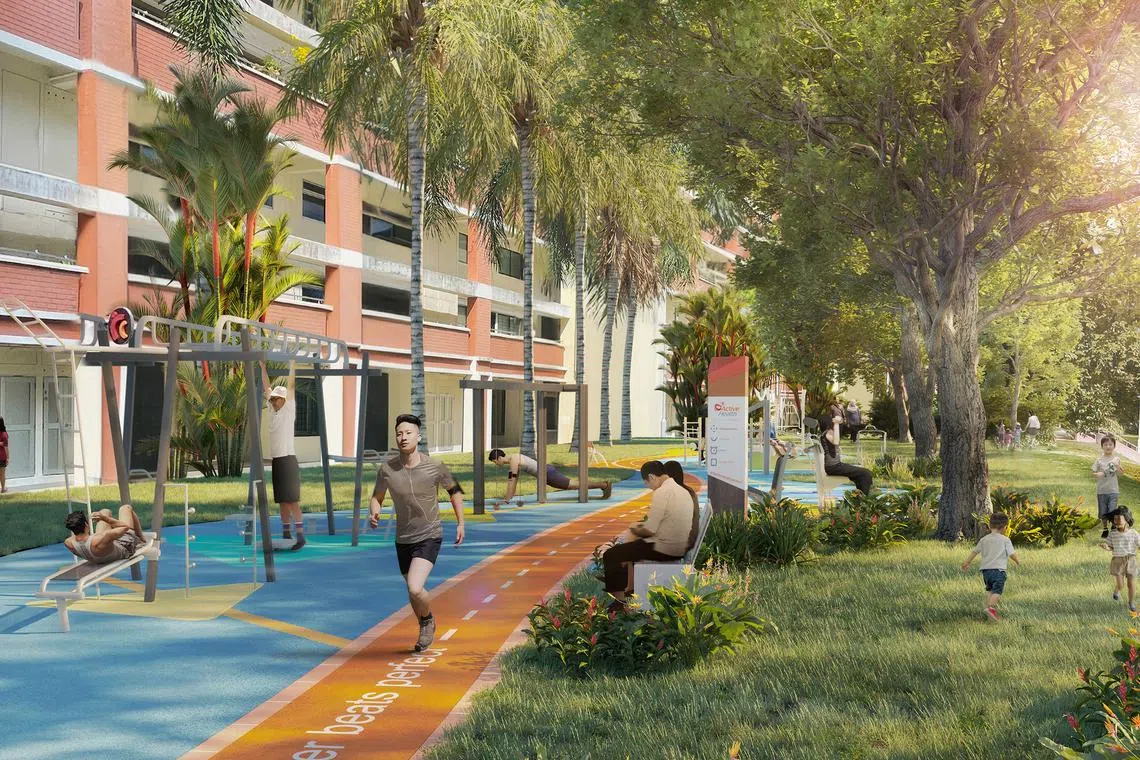
A fitness trail will be built in the Mei Ling precinct in Queenstown.
PHOTO: HDB
There are also plans to launch assisted-living flats for seniors in 30 locations by 2030, if the model proves effective.
Two pilot projects have already been launched in Bukit Batok and Queenstown, and a third will be launched in Bedok in December.
The planned infrastructural improvements have been brought under the umbrella of Age Well SG, a national programme
Led by the Health, Transport and National Development ministries, the programme aims to help those aged 65 and above to age well in their homes and communities.
On the transport front, the Land Transport Authority’s (LTA) Friendly Streets scheme will first be tested in five locations
Construction will start progressively from the end of 2023 to retool nearly 5km of roads across these neighbourhoods, so that they prioritise pedestrians instead of vehicles.
The move to expand the scheme to all towns builds on positive feedback that LTA said it has received so far.
All five trial projects will have green road markings to remind motorists to slow down, but each project is also unique and designed in partnership with its community.
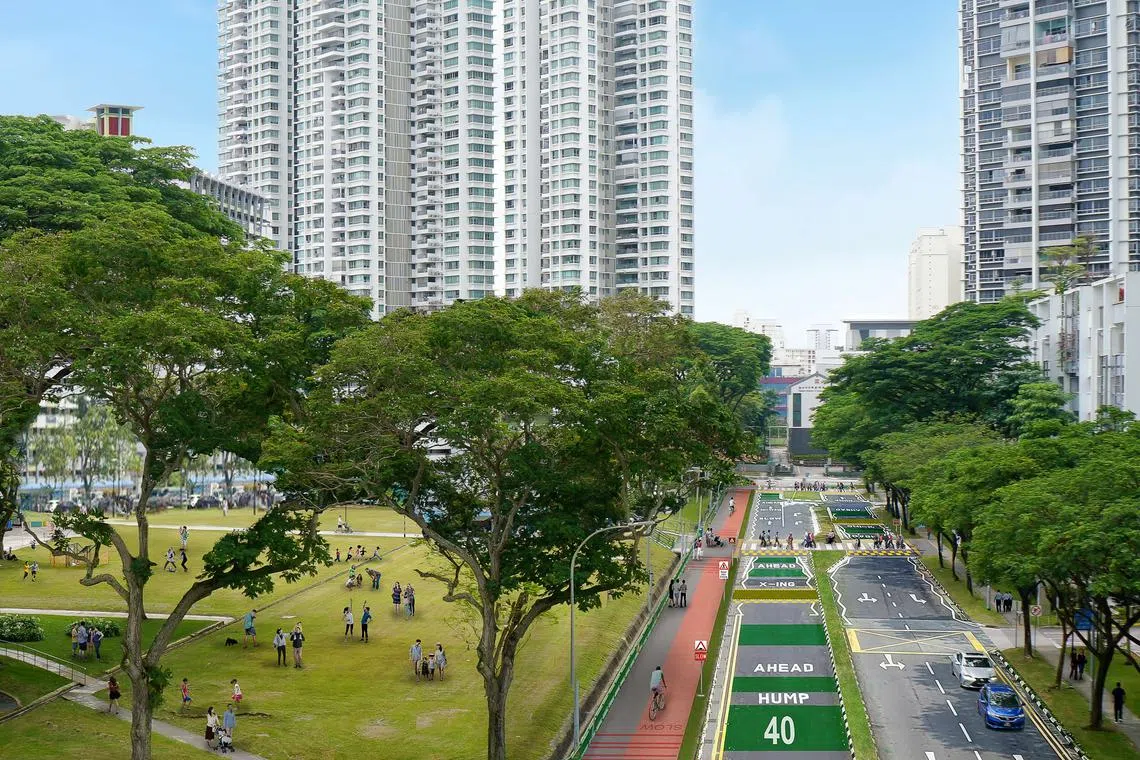
An artist’s impression of how the Friendly Streets scheme at Lorong 1A Toa Payoh will look like.
PHOTO: LTA
Said Acting Transport Minister Chee Hong Tat: “There will be a trade-off between the speed of travelling and safety... We will need the understanding and support of all our residents.”
The ministries said on Thursday that a bigger and more concerted effort is being made to meet the needs of Singapore’s rapidly greying population by improving homes and estates.
As with Friendly Streets, this push will entail closer partnerships with residents, and tighter coordination and collaboration between government agencies.
For instance, before upgrades are made to the 20 or so housing precincts, seniors there will be asked to give their views through “community improvement walks”.
Mr Lee said residents will be invited to take the authorities on routes they frequent in their estates, so that government agencies can identify gaps and better understand how these areas can be improved.
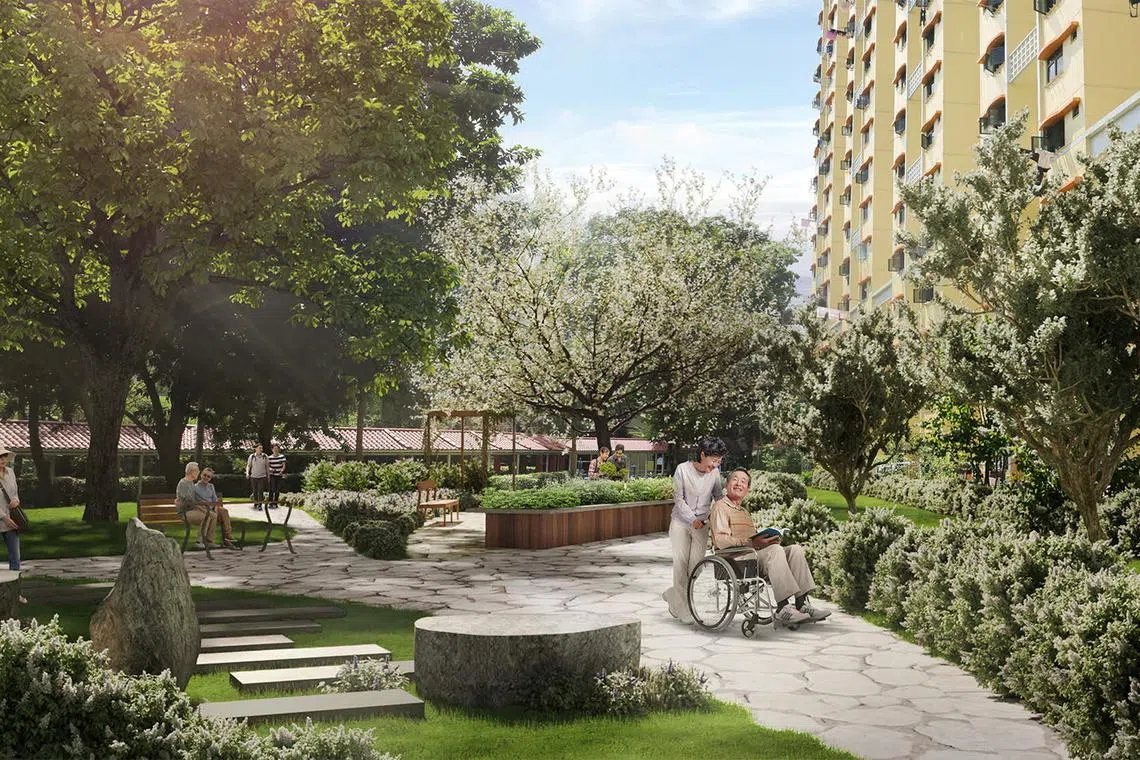
A new wellness landscape that will be constructed in the Commonwealth Heights precinct.
PHOTO: HDB
Senior-centric improvements will be made in selected private estates too, but the authorities could not provide information on which estates these are or how many will be chosen. Some of these estates will include those that have already been improved under the Ministry of National Development’s estate upgrading programme, said the ministries.
The upgrading work will include more barrier-free ramps and rest points along routes that seniors frequent. Larger and more colourful signs will also be introduced to help those with dementia find their way around.
As for the plan to add more assisted-living flats, the three ministries said it comes on the back of the positive response to the Harmony Village@Bukit Batok and Queensway Canopy pilot projects.
It was previously reported that about 90 per cent of the roughly 400 assisted-living units available at both projects were taken up
These flats, which have leases ranging from 15 to 35 years, have elder-friendly designs and come bundled with care services such as 24-hour emergency response.
The ministries said scaling up such flats here will give more seniors the option of spending their golden years in familiar neighbourhoods.
“We will watch the initial few launches to ensure that the model works well (and) iron out all the issues along the way,” Mr Lee said, adding that there is high demand from seniors looking to “right-size” their homes.
Within existing HDB flats, the authorities are also looking to add a wider range of elder-friendly features.
Prime Minister Lee Hsien Loong announced this in his National Day Rally speech in August, when he spoke about the expanded Enhancement for Active Seniors (Ease) 2.0 programme,
The ministries said on Thursday that the initiative will offer other features, such as home fire alarm devices and rocker light switches. The aim is to launch Ease 2.0 in 2024, Mr Desmond Lee said.
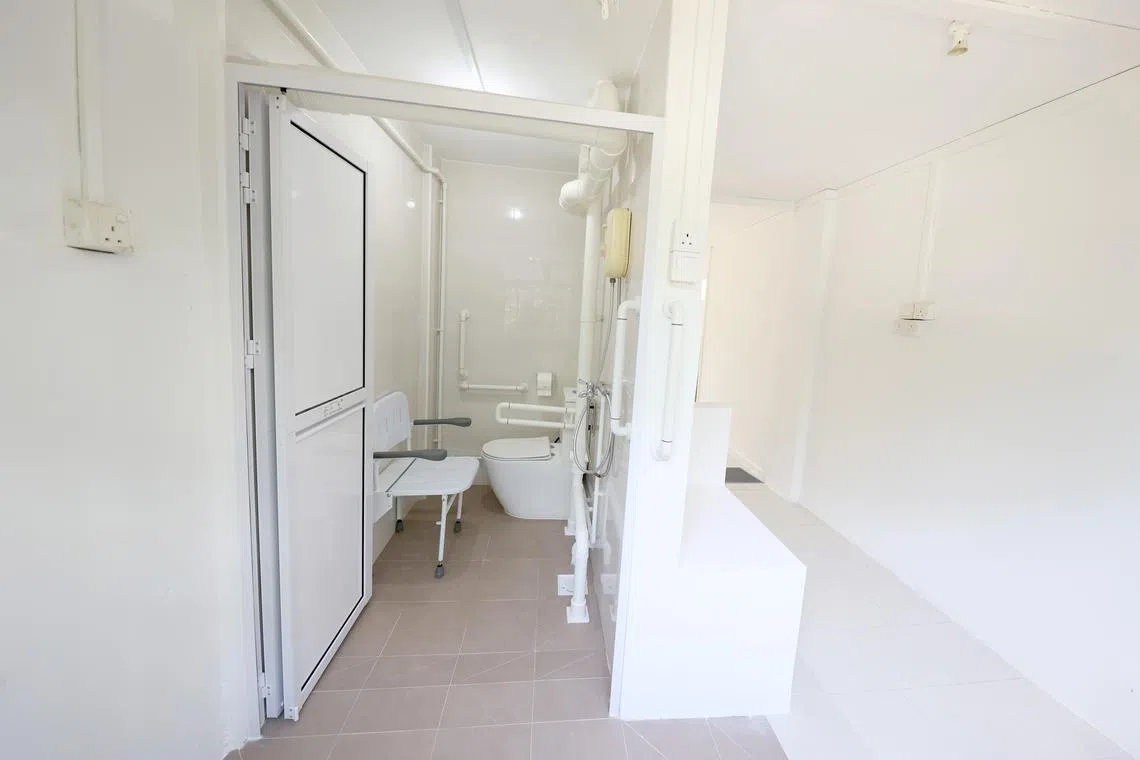
The expanded Enhancement for Active Seniors 2.0 programme will provide seniors with wider toilet entrances and foldable shower seats.
PHOTO: MCI
The new features come on top of the elder-friendly fittings that are already available under the current Ease programme, such as grab bars and ramps for flat entrances with steps.
The features were decided in consultation with the Ministry of Health, Agency for Integrated Care and healthcare professionals such as occupational therapists.
Launched in July 2012, Ease is offered in tandem with HDB’s Home Improvement Programme or via a direct application to the public housing agency.
To be eligible, households must have a family member aged 65 and above, or aged between 60 and 64 and in need of help with at least one activity of daily living, such as bathing or dressing.
Mr Edwin Lee, 70, who lives in Siglap, is glad that the Government is making it easier for seniors like himself to get around.
The semi-retired home baker said there have already been improvements made to his neighbourhood, with wider footpaths and longer crossing times near his bus stop.
He is also happy to see more fitness corners being built in convenient locations, adding: “I really appreciate the effort that is being put in.”


